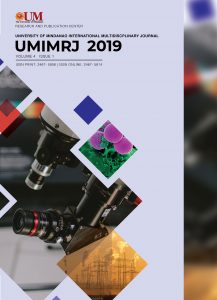Farah Aimee S. Virador
Literature Department, University of Southeastern Philippines, Davao City, Philippines
DOI: https://doi.org/
Abstract
The continuous dominance of English as a global lingua franca in the 21st century has led to the proliferation of English classes online where people from different parts of the globe can learn and teach English using different online platforms. In the Philippines alone, the online English teaching industry has generated thousands of jobs as English language learners from other countries, mostly coming from Expanding Circle countries in Kachru’s (1992) Three-concentric model of World Englishes, learn English with Filipino online English teachers. Using the Positioning Theory of Davies and Harre (1999) as a tool or lens, this study investigates a single ELF intercultural communication between a Filipino online English teacher and her Chinese student. It aims to examine how the two interlocutors of different linguistic and cultural backgrounds actively construct their identities in an attempt to develop cultural affinity with one another and to contribute to the current literature by presenting how an intercultural teaching approach can help contribute to the sharing of cultural knowledge and construction of a multicultural identity among online English teachers and their students.
Keywords: English as lingua franca, online English class, positioning theory
![]()

